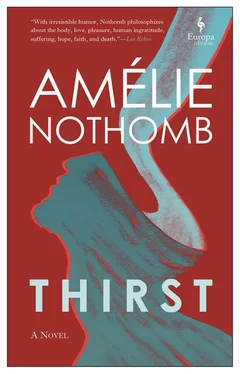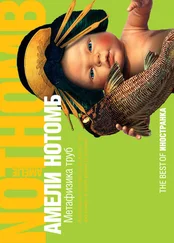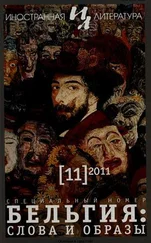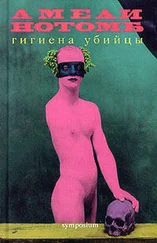What is this reading that keeps us so busy once we have died? The book takes shape depending on our desire; our desire gives rise to the text. We are in that luxurious situation where we are both author and reader: writers who create for their own enchantment. No need of pen or keyboard when you are writing in the cloth of your delight.
If we don’t seek out encounters, it’s because they remind us of our individuality as living beings, something we no longer particularly desire. When he came to find me, Judas called me by my first name, which surprised me.
“Had you forgotten your name is Jesus?”
“Forgotten is not the right word. I’m just not obsessed with it, is all.”
“You don’t know how lucky you are. I think of little else: I betrayed you. I’m the bad guy in your story.”
“If you don’t like it, think about something else.”
“What else could I think about?”
“Don’t you have some pleasurable place to go to in your thoughts?”
“I don’t understand your question. I’m the man who betrayed Christ. How do you expect me not to be obsessed by that?”
“If that’s what you want, you can stew over it for ever and ever.”
“You see! You’re encouraging me to feel remorse!”
That’s not what I had said. I felt a strange emotion on discovering that misunderstandings could survive beyond death.
What remains of my time as a living person named Jesus?
On their deathbed, the dying often say, “If I could do it all over…”—and they specify what they would do all over and what they would change. This proves they are still alive. When you’re dead, you feel neither approval nor regret with regard to what you’ve done or not done. You see your life as a work of art.
At the museum, when you stand before a canvas created by a great master, you never think, “Now if I were Tintoretto, I would have done it like that instead.” You gaze at the painting, you take note. And just suppose that you actually were that famous Tintoretto once upon a time, you don’t judge yourself, you simply state, “That’s me, I can tell from that brushstroke.” You don’t wonder whether this had anything to do with good and evil, and the thought never even occurs to you that you could have done things differently.
Even Judas. Above all, Judas.
I never think back to the crucifixion. It wasn’t me.
I contemplate what I liked, what I do like. My trifecta is still working. Dying is no longer really newsworthy, but it’s been worth the detour. Dying is better than death, just as loving is much better than love.
The big difference between my father and me is that he is love, and I am loving. God says that love is for everyone. I who am loving, I see very well that it is impossible to love everyone in the same way. It’s a question of breath.
In English, the word is too simple. In Ancient Greek, breathing translates as pneuma : an admirable find to express the notion that breathing cannot be taken for granted. English, that eminently practical language, has only preserved, for use in everyday life, words like pneumatic.
When you’re dealing with someone you suspect you don’t like very much, you say that you cannot stomach them. This digestive malaise may then make it difficult to breathe in the presence of that bothersome person.
To use the word breathtaking about someone implies just the opposite: first your breath is taken away from you, then you breathe too much. You feel this hopeless need to breathe in the person whose presence knocks you off your feet.
Even though I’m quite dead, I still feel the dizziness of breath. The illusion is playing its part to perfection.
The one thing I do mourn is thirst. I miss drinking less than the urge that inspires it. A learned synonym for drunkard is dipsomaniac. Dipsa is Greek for thirst, but maniac, as far as I’m concerned, is a contradiction in terms, and one I was not in danger of deserving.
To experience thirst, you must be alive. I lived so intensely that I died thirsting.
Perhaps that is what is meant by eternal life.
My father sent me here on earth to spread the faith. Faith in what? In him. Even if he did deign to include me in the concept through the notion of the trinity, I find it mind-boggling.
I came to this conclusion in no time. Moreover, how often did I say to this or that person in distress, “Your faith has saved you”? Would I have lied to these unfortunate people? The truth is that I tried to outsmart my father. I noticed that the word faith had a strange property: it became sublime, provided it was intransitive. The verb “to believe” obeys an identical law.
To believe in God, to believe that God was made man, to have faith in the resurrection: that all sounds a bit shaky. The things we don’t like to hear also offend our spirit. It sounds stupid because it is. It all remains pretty lowbrow, like in Pascal’s wager: believing in God means placing your bets on him. The philosopher even goes so far as to tell us that no matter the outcome of the raffle, we are sure to win.
And what about me in the middle of all this: do I believe? In the beginning, I agreed to this crazy scheme because I believed in the possibility of changing mankind. Fat lot of good that did. I managed to change maybe three people at the very most. And besides, what an idiotic belief! You really must know nothing about anything to think you can change someone. People change only if it comes from within, and it is extremely rare for them to really want to change. Nine times out of ten, their desire for change is about other people. “This has to change,” a phrase you hear ad nauseam , always signifies that it’s people who ought to change.
Have I changed? Yes, certainly. Not as much as I would have liked. I may be credited for what I really tried to accomplish. I confess I get irritated with people who are constantly telling you they’ve changed when all they’ve really ever known is the desire to change.
I have faith. This faith has no object. That doesn’t mean I don’t believe in anything. Believing is beautiful only in the absolute sense of the term. Faith is an attitude and not a contract. There are no boxes to tick. If we knew the nature of the risk that faith consists of, our impulse would not go beyond calculating probability.
How do we know when we have faith? It’s like love, you just know. You don’t need to think about it to figure it out. In gospel music they say “And then I saw her face, yes I’m a believer.” That’s just what it is, and it shows how similar faith and being in love really are: you see a face and suddenly everything changes. You didn’t even gaze at that face, you just caught a glimpse of it. That simple epiphany was enough.
I know that for a lot of people, that face will be mine. I’ve convinced myself that it has no importance whatsoever. And yet, if I want to be perfectly frank, which I do, it leaves me dumbfounded.
You have to accept the mystery: you cannot imagine what other people see in your face.
There is a counterpart that is every bit as mysterious: I look at myself in the mirror. What I see in my face, no one can know. It’s called solitude.
Amélie Nothomb was born in Japan to Belgian parents in 1967. She lives in Paris. Since her debut on the French literary scene over two decades ago, she has published a novel a year, every year. Her edgy fiction, unconventional thinking, and public persona have combined to transform her into a worldwide literary sensation. She is the recipient of the French Academy’s 1999 Grand Prix for the Novel, the René-Fallet, Alain-Fournier, and Jean-Giono prizes. In 2015, King Philippe of Belgium bestowed the title of Baroness upon her. Baroness Fabienne-Claire Nothomb currently lives in Paris.
Читать дальше











